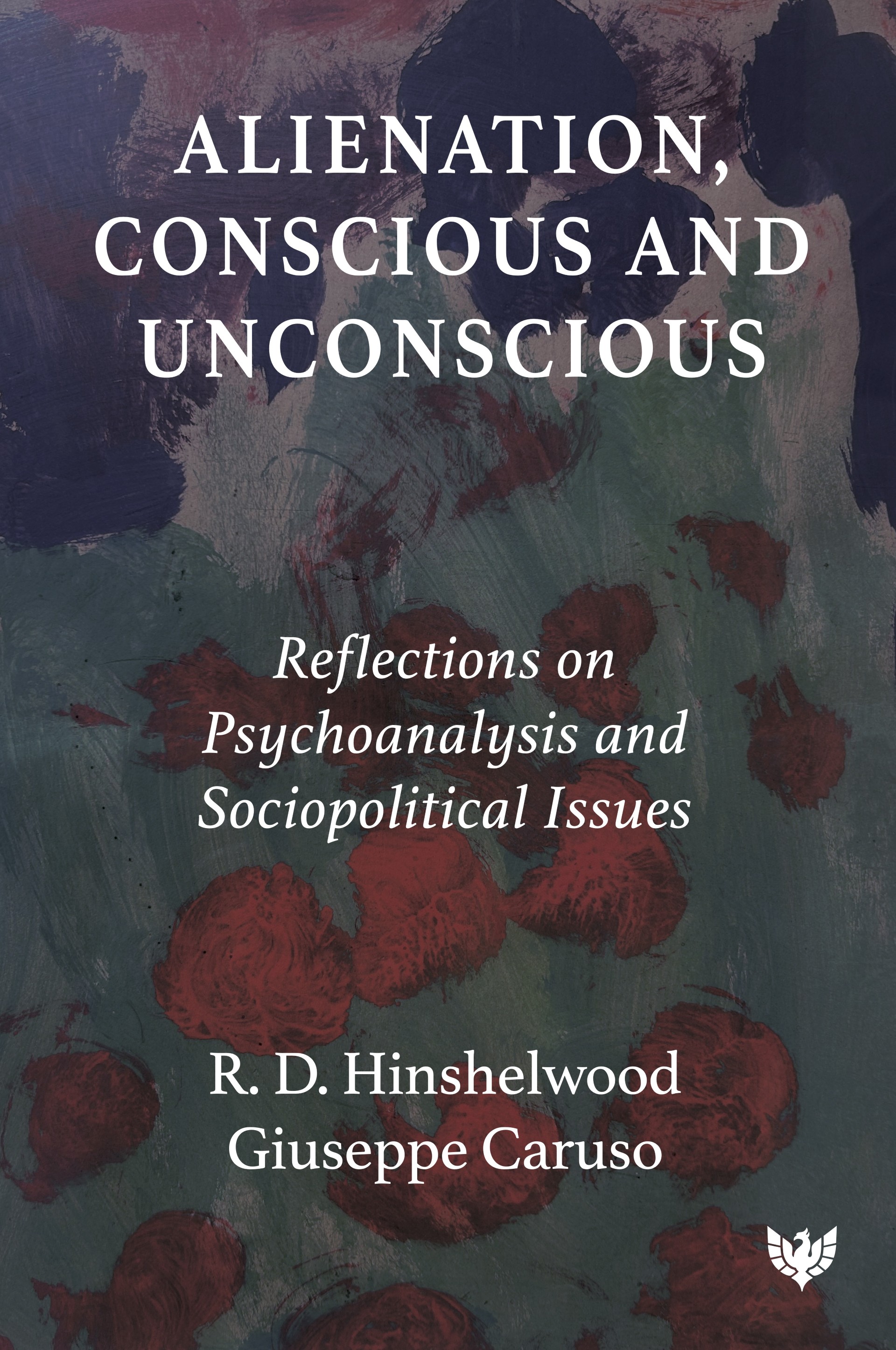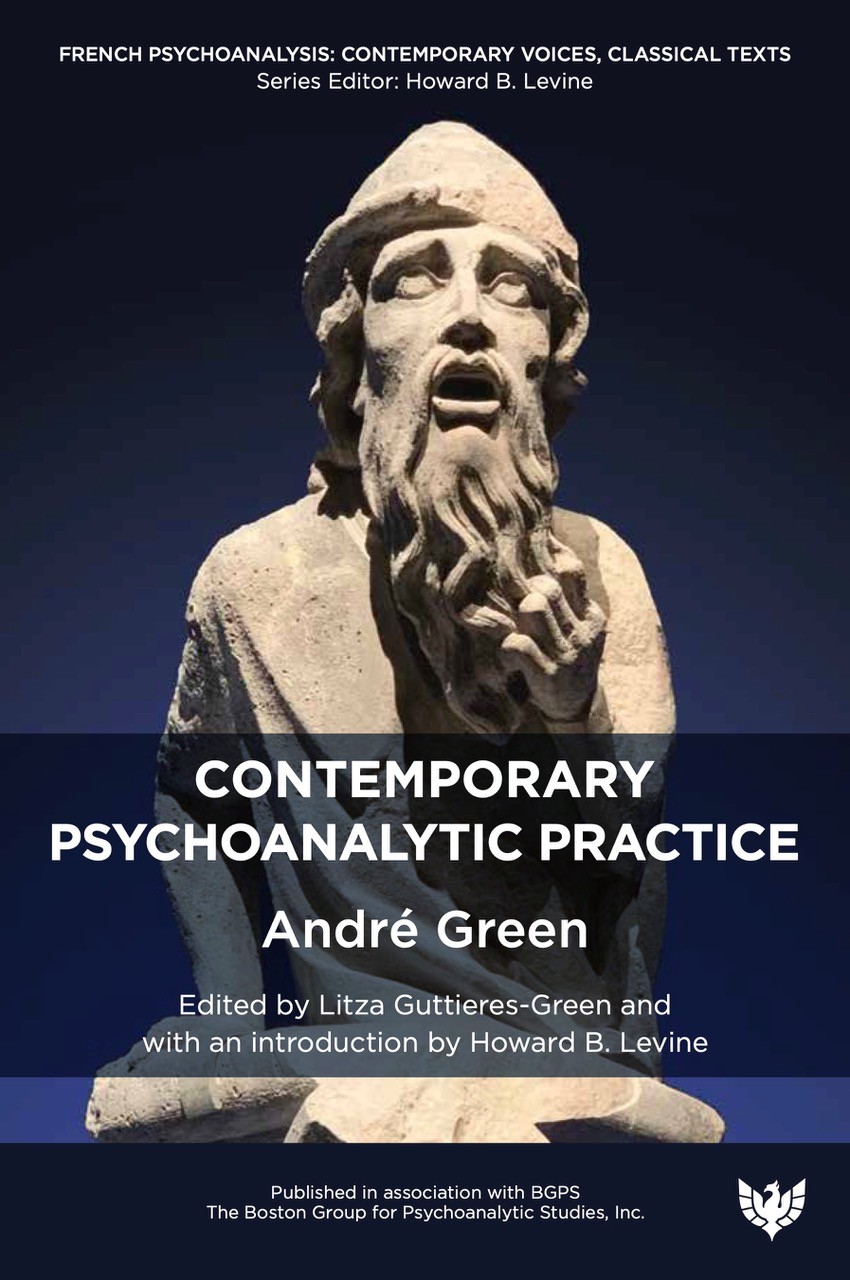The Routledge International Handbook of Psychoanalysis, Subjectivity, and Technology

Book Details
- Publisher : Routledge
- Published : August 2023
- Cover : Hardback
- Pages : 406
- Category :
Psychoanalysis - Catalogue No : 97311
- ISBN 13 : 9781032050690
- ISBN 10 : 1032050691
Also by David M. Goodman
The Ethical Turn: Otherness and Subjectivity in...
Price £48.99
Also by Matthew Clemente
Eros Crucified: Death, Desire, and the Divine in...
Price £32.99
There are currently no reviews
Be the first to review
The Routledge International Handbook of Psychoanalysis, Subjectivity, and Technology uniquely provides a comprehensive overview of human subjectivity in the technological age and how psychoanalysis can help us better understand human life.
Presented in five parts, David M. Goodman and Matthew Clemente collaborate with an international community of scholars and practitioners to consider how psychoanalytic formulations can be brought to bear on the impact technology has had on the facets of human subjectivity. Chapters examine how technology is reshaping our understanding of what it means to be a human subject, through embodiment, intimacy, porn, political motivation, mortality, communication, interpersonal exchange, thought, attention, responsibility, vulnerability, and more.
Filled with thought-provoking and nuanced chapters, the contributors approach technology from a diverse range of entry points but all engage through the lens of psychoanalytic theory, practice, and thought.
This book is essential for academics and students of psychoanalysis, philosophy, ethics, media, liberal arts, social work, and bioethics. With the inclusion of timely chapters on the coronavirus pandemic and teletherapy, psychoanalysts in practice and training as well as other mental health practitioners will also find this book an invaluable resource.
Reviews and Endorsements
Open this handbook with great care, for in it you will find a mirror (at times, a black mirror) reflecting a contemporary vision and analysis of yourself, your world, and the technologies that shape you. Psychoanalysis becomes the perfect tool for exploring how we live with and are lived by technology, and this book digs deep into the theory, practice, and process of living in a world transformed by the machines we create.
Jack Foehl, President, Boston Psychoanalytic Society & Institute
If one were able to go back in time and tell Louis XIV, in all his glory, that in our times one can have a warm home equipped with hot running waters throughout the winter and a cool breeze in his bedchamber all summer long and do so effortlessly; or the means to illuminate every corner in his rooms and every room in his house at will; or to have any meal or drink his appetite might fancy delivered to him within the hour at his door; or have his coffee made at the press of a button; or to have the uncanny ability to summon in his presence the representations of absent people, whether living or dead, hear them talking and talk with them as if they were present, and, in short, all of the other abilities modern technology makes possible to us, he would say that these are powers unfathomable even to a Sun King, to be assigned perhaps only to a god, even if, as Freud aptly put it, a prosthetic god.
And if one were able to go back in time and tell King Solomon, in all his wisdom, that such god-like powers have been given to all, from haughty rulers to humble parlormaids, and given equally, he would question whether our powerful devices have made the latter any happier or the former wiser than him. It takes an analytic approach, as Freud again rightly notes, to untangle the tele-technological enigma. And it is to our great benefit that this handbook begins the work of doing just that.
John Panteleimon Manoussakis, Associate Professor of Philosophy, College of the Holy Cross
Table of Contents
Introduction: Technology and Its Discontents
David M. Goodman and Matthew Clemente
PART I
Everything Has Two Handles: Technological Ambivalence
1. Touching Trauma: Therapy, Technology, Recovery
Richard Kearney
2. Mediating the Subject of Psychoanalysis: A Conversation on Bodies, Temporality, and Narrative
Patricia T. Clough, Bibi Calderaro, Iréne Hultman, Talha İşsevenler, Sandra Moyano-Ariza, and Jason Nielsen
3. Dreaming Life in the Digital Age
Richard Frankel
4. The Soul behind Your Eyes: Psychic Presence in the Digital Screen
Victor J. Krebs
5. The Time of Technology: Plato’s Clock and Psychoanalysis
Eric R. Severson
6. Psychoanalysis Has Lost Its Touch and Other Reflections from a Technologic Age
Matthew Clemente
PART II
The Philosopher’s Stone: Converting Theory into Practice
7. Auxiliary Organs and Extimate Implants: Coming to Terms with Technology from a Psychoanalytical Perspective
Hub Zwart
8. Foucault’s Care of Self: A Response to Modern Technology
Hannah Lyn Venable
9. Mary Shelley’s Frankenstein: Reflections on the Other as Monster
Robert D. Romanyshyn
10. Lifepower as a Metaphor in Edith Stein’s Philosophy of Psychology: Salient Questions for Psychoanalysis and Transhumanism
Gabriel J. Costello
11. Technology in Tenebris: Heidegger on the Paradoxes of Truth, Freedom, and Technology
William J. Hendel
PART III
Through the Looking-Glass: Online Fantasies, Social Media, and the Screen
12. No One Gets Out of Here Alive: Trading Technologies of Human Exceptionalism for Dense Temporalities of Transcorporeal Zooms
Katie Gentile
13. The Intimacy of the Virtual Distance
Susi Ferrarello
14. Abject Evil: Technology and the Banality of the Thanatonic
Brian W. Becker
15. The Analytic Fourth: Telepsychotherapy between Opportunities and Limitations
Osmano Oasi, Roberto Viganoni and Chiara Rossi
16. From the Analog to the Digital Unconscious: Reflections on the Past, Present, and Future of Psychoanalytic Media Studies
Jacob Johanssen
17. Could I Interest You in Everything All of the Time?: A Bionian Analysis of Social Media Engagement
Karley M.P. Guterres, A. Taiga Guterres and Julia Goetz
18. Hashtag Mania or Misadventures in the #ultrapsychic
Stephen Hartman
19 Internet Memes and the Face of the Other 241
Lewis Thurston and Nancy Thurston
20. Who Am I Really? Illusions and Splits in the Mirror
Susan E. Schwartz
21. Emotional Trauma and Technology: A Clinical Story of Traumatic Isolation and Technologically Mediated Psychoanalytic Therapy
Peter Maduro
22. Touch (Screened): Technological Trauma, Excarnation, and Dissociation in a Digital Age
M. Mookie C. Manalili
PART IV
Animating the Inorganic: Analyzing Artificial Intelligence
23. AI and Madness
Anestis Karastergiou
24. Algorithmic Dedication and Mercurial Psychoanalysis: Subject, Subjectivation, and the Unconscious in the Digital World-Environment
Jean Marc Tauszik
25. Uncanny Traces: Villiers de l’Isle-Adam’s Critique of the Metaphysics of Selfhood
Manolis Simos
26. Auto Intimacy
Hannah Zeavin
27. Mental Health Treatment in the Information Age: Exploring the Functions of Artificial Intelligence and Human Subjectivity in Psychotherapy
Lisa Finlay
PART V
Future of an Intrusion: Technology, Politics, and the Road Ahead
28. Ironically into the End of an Era, with Continual Reference to Kierkegaard
Samuel C. Gable
29. Streaming Desire and the Post-Machine World
Heather Macdonald
30. Cruel Optimization: Interrogating Technology’s Optimization of Human Being
Stephen Lugar
31. ROOM: A Sketchbook for Analytic Action: The Use of Digital Technology as a Vehicle in Psychoanalysis
Hattie Myers and Isaac Slone
About the Editor(s)
David M. Goodman is Associate Dean for Strategic Initiatives and External Relations at the Lynch School of Education and Human Development at Boston College, where he also serves as the director of Psychological Humanities and Ethics.
More titles by David M. Goodman
Matthew Clemente is a husband and father of five. He lives and writes in Boston, Massachusetts, where he holds teaching appointments at Boston College and Boston University. He has published seven books, most recently Eros Crucified: Death, Desire, and the Divine in Psychoanalysis and Philosophy of Religion, and is the assistant editor of the Journal for Continental Philosophy of Religion.
Customer Reviews
Our customers have not yet reviewed this title. Be the first add your own review for this title.
You may also like
Alienation, Conscious and Unconscious: Reflections on Psychoanalysis and...
R.D. Hinshelwood
Price £34.19
save £3.80
Ordinary People and Extra-ordinary Protections: A Post-Kleinian Approach to the...
Judith L. Mitrani
Price £41.99










